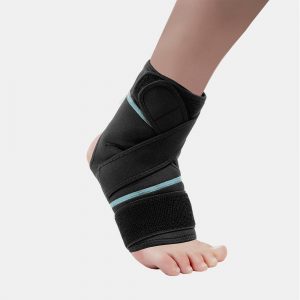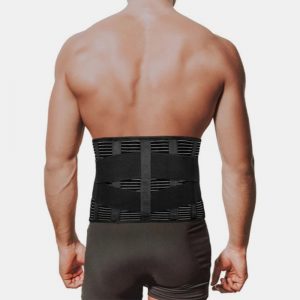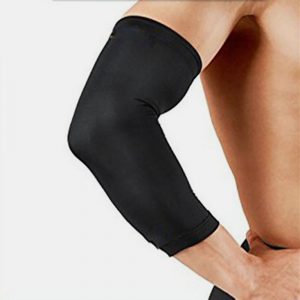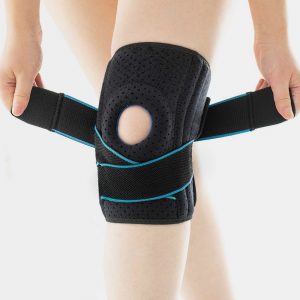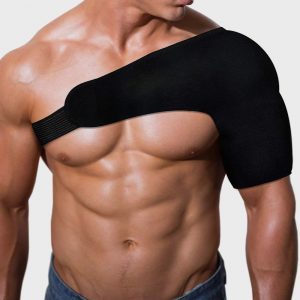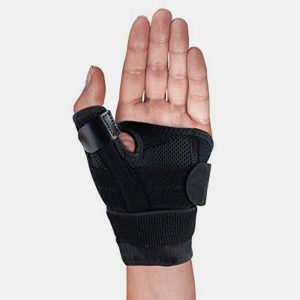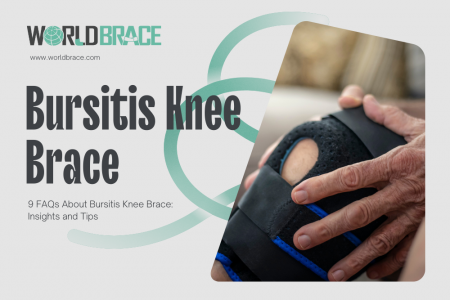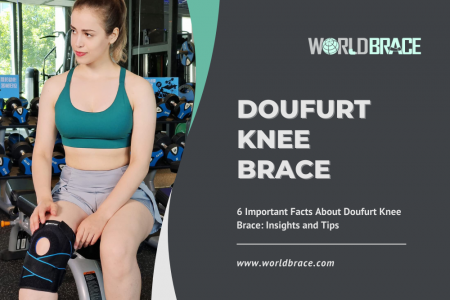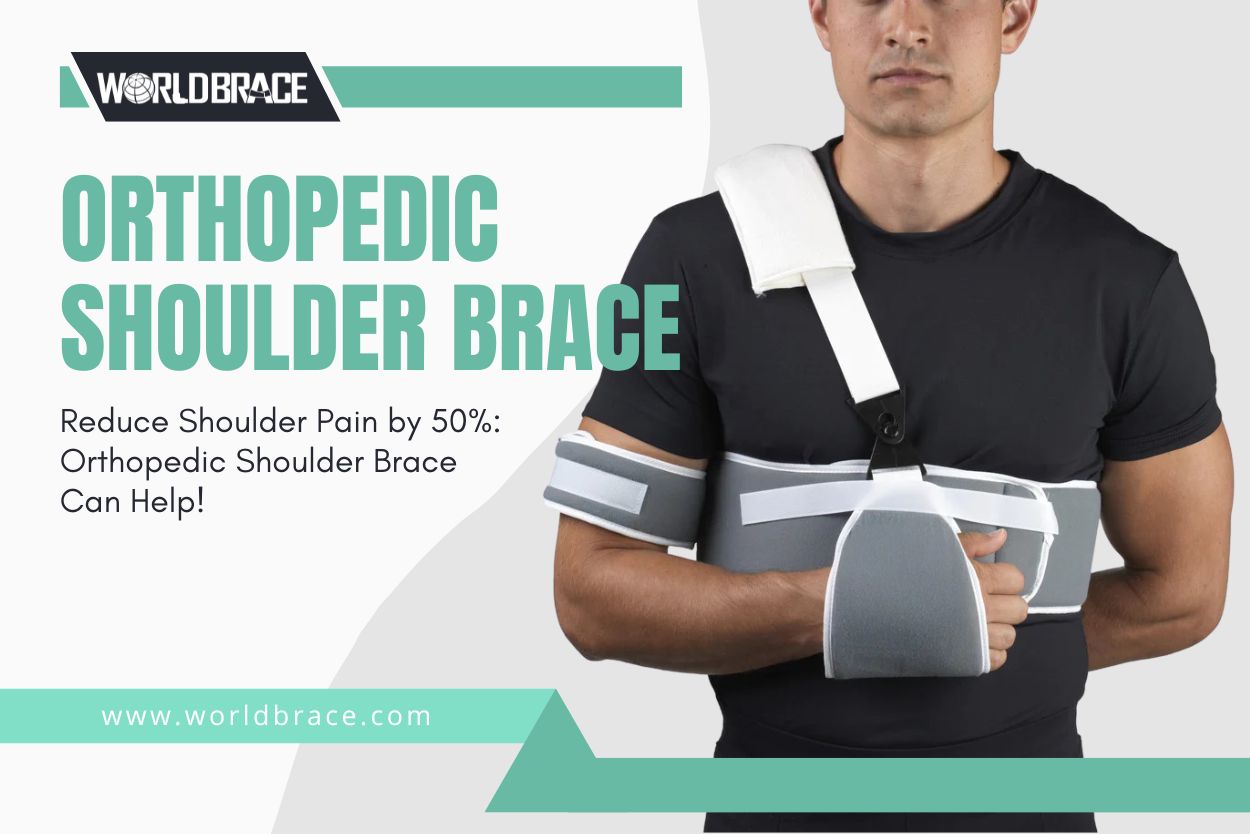
What is Shoulder Pain: Causes and Symptoms
Shoulder pain is a frequent ailment that can stem from various factors. The most common causes of shoulder pain include rotator cuff injuries, bursitis, tendonitis, arthritis, and frozen shoulder. Symptoms of shoulder pain may also include stiffness, swelling, and limited range of motion.
Shoulder pain can significantly impact daily life, as it can affect simple tasks such as lifting objects or reaching overhead. It can also interfere with sleep, making it difficult to get comfortable at night. Shoulder pain is likely to become chronic and result in long-term complications, such as permanent loss of range of motion, if it is not treated.
An orthopedic shoulder brace can be an effective treatment option for reducing pain and promoting healing. An orthopedic shoulder brace can help reduce pain, inflammation, and swelling and improve overall range of motion by adequately supporting the shoulder joint.
How Orthopedic Shoulder Braces Work: Types and Features
Orthopedic shoulder braces are specialized devices designed to provide support and stability to the shoulder joint, helping to alleviate pain and discomfort caused by injuries, strains, and other conditions. These braces work by limiting the shoulder’s range of motion and providing additional support to the surrounding muscles and ligaments, reducing strain and allowing the injured area to heal more quickly.
There are several different types of orthopedic shoulder braces. For example, immobilizers are rigid braces used to immobilize the shoulder joint completely, providing maximum stability and support. Stabilizers, on the other hand, are more flexible and allow for a more excellent range of motion while still providing support and reducing strain on the shoulder.
Other braces include rotator cuff braces, explicitly designed for rotator cuff injuries, and posture braces. These correct poor posture and reduce strain on the shoulders and neck. These braces’ features include adjustability for a customized fit, breathable materials to minimize discomfort, and extra padding or straps for added support.
When to Use an Orthopedic Shoulder Brace
Shoulder braces are orthopedic devices designed to provide support, stability, and protection for the shoulder joint. Here are some key points to consider when determining when to use an orthopedic shoulder brace:
- Shoulder pain: If you are experiencing shoulder pain due to an injury, overuse, or chronic conditions such as arthritis, a shoulder brace may be recommended to help relieve pain and promote healing.
- Shoulder instability: It can be caused by various conditions, such as a torn rotator cuff, a dislocated shoulder, or shoulder subluxation. In such cases, wearing a shoulder brace can offer support and reduce the risk of further injury.
- Physical activity: If you engage in activities that strain your shoulder joint, such as throwing a ball or lifting weights, a shoulder brace can help reduce the risk of injury and provide support during the activity.
- Doctor’s recommendation: Consult with a healthcare professional, such as a physical therapist or orthopedic doctor, is essential. They can assess your condition and recommend the appropriate treatment plan, including an orthopedic shoulder brace.
How to Choose the Right Orthopedic Shoulder Brace
Choosing the right orthopedic shoulder brace reduces pain and promotes healing. Here are some steps to consider when selecting a brace:
- Determine the severity of your condition: The severity of your condition will impact the type of brace you need. For example, if you have a mild injury, a simple compression sleeve may be sufficient, while a more severe injury may require a brace with added support.
- Consider the type of brace: There are several orthopedic shoulder braces, including immobilizers, stabilizers, and rotator cuff braces.
- Look for adjustability: A good shoulder brace should be adjustable to ensure a proper fit. Look for braces with adjustable straps or closures to ensure you can adjust the fit as needed.
- Consider comfort: A comfortable brace is essential, especially if you wear it for an extended period. Look for braces with breathable materials and padding to prevent irritation and discomfort.
- Check for quality: Quality is important when selecting a shoulder brace. Look for braces made from durable materials and reputable manufacturers.
- Seek professional guidance: Consult with a healthcare professional when selecting a shoulder brace is always a good idea. They can help determine the appropriate type of brace for your specific condition and guide how to wear it properly.
Tips for Wearing an Orthopedic Shoulder Brace: Care and Maintenance
Proper care and maintenance of an orthopedic shoulder brace can help ensure its effectiveness and longevity. Here are some tips to keep in mind:
- Cleaning: Regularly clean your shoulder brace to prevent sweat, dirt, and bacteria buildup. Follow the manufacturer’s instructions for cleaning, as some braces may be machine washable while others require hand-washing.
- Drying: Allow your shoulder brace to air-dry completely before wearing it again. Please do not put it in the dryer, as the heat can damage the materials and affect their fit.
- Adjusting: Check the fit of your shoulder brace regularly to ensure it is snug but not too tight. Adjust the straps or closures as needed for comfort and proper support.
- Skin irritation: If you experience skin irritation or chafing from the brace, wear a shirt or undershirt underneath to create a barrier. You can also try applying a skin protectant or barrier cream to the affected area.
- Removing: Take care when removing your shoulder brace to avoid aggravating your injury. Follow the instructions from your healthcare professional for safe removal.
- Storage: Store your shoulder brace in a cool, dry place when not in use. Avoid folding or crushing the brace, which can affect its shape and effectiveness.
Conclusion
In conclusion, orthopedic shoulder braces can be valuable in reducing shoulder pain and improving function. By providing support and stability to the shoulder joint, these braces can help alleviate symptoms and promote healing.
Looking for an orthopedic shoulder brace? We are a leading manufacturer and supplier of shoulder braces from China. Get wholesale prices on bulk orders from our company today!

